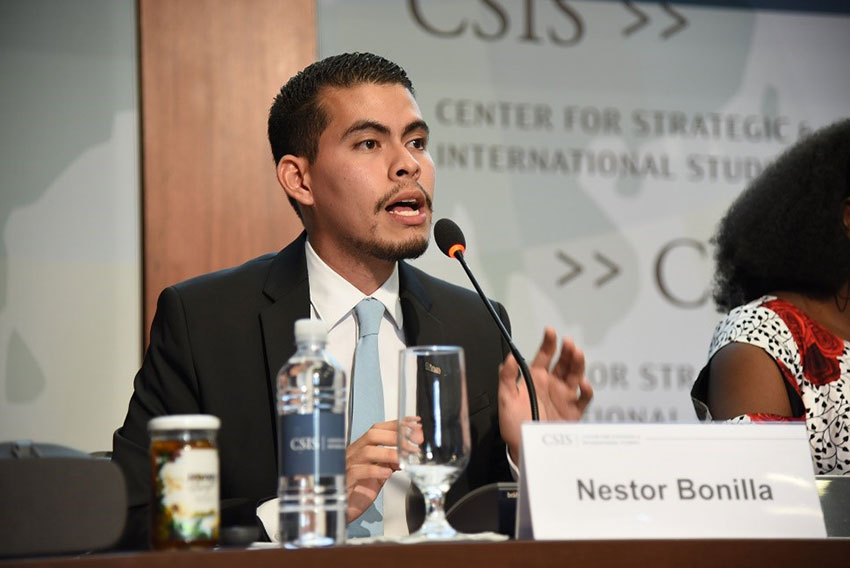
Photo Credit: Leanne Gray/FHI 360
Nestor Bonilla is an entrepreneur from Managua, Nicaragua, who works with local and international organizations to apply technology in new ways to solve social problems. He also founded two social start-ups: Honey Things and Digital Bonds. In 2017, Bonilla was a fellow with the Workforce Connections project, which was funded by the U.S. Agency for International Development and implemented by FHI 360. Recently, Bonilla visited Washington, DC, and shared his perspectives on entrepreneurship and youth.
Why did you become an entrepreneur?
Being an entrepreneur has been a way of life for me since I was a child. My father was an accountant and worked for different companies, always from home. I wanted to do something similar. As an adult, I worked for two years in a formal job, eight to five, and was in charge of a software system that tracked merchandise coming in and out of Nicaragua.
At the same time, I was volunteering with several nonprofit organizations and traveling to events, where I met people who spoke to me about different social problems that needed solutions. There was a tension between my formal job, which didn’t want me to travel, and my volunteer work. So, I quit and made the decision to become an entrepreneur.
How did your experience as a Workforce Connections fellow influence your work?
As a fellow, I had the opportunity to increase both my hard and soft skills. I learned how to conduct a labor market assessment using FHI 360’s framework and saw how that information could be used to boost entrepreneurship and innovation. I got a broader perspective on what types of technology projects I could propose to nonprofit organizations.
At the end of my fellowship, I developed a mobile application to make labor market information more accessible for professional and technical job seekers and firms in Nicaragua. I also made a lot of connections in DC through networking opportunities. I was in a new culture and adjusted my mindset to be more global. All of the knowledge and lessons I learned have helped me to run Honey Things and Digital Bonds.
Tell us about your social start-ups. What impact are they having?
My partner is from the northern part of Nicaragua, and beekeeping is common there. In 2016, we started Honey Things. Nicaragua has been greatly affected by climate change, especially in the north, and farmers are being forced to adapt. We saw this problem and developed a mobile app with a flora map that shows beekeepers where to move their hives to maximize their productivity. We make the app free to farmers and then they sell us their products, which we brand and sell. We earn money and also make a positive impact. Earlier this year, I relocated to Panama, but Honey Things continues to be run by a trusted team in Nicaragua.
At Digital Bonds, which is based in Panama, we are promoting innovative ways to solve societal issues in Latin America through technology. Our work consists of designing, developing and managing technology projects for social causes and nonprofit organizations to increase their impact and reduce costs. We are also able to provide our clients with metrics that capture progress toward reaching the Sustainable Development Goals. Among the technologies we use to accomplish these goals are web development, mobile applications, digital marketing, audio-visual productions and virtual reality.
What advice can you offer young people interested in starting their own businesses?
Be willing to try and believe that you can make the difference. As a first step, developing soft skills – critical thinking, how you value yourself and see yourself – is very important for youth. They should see opportunities and think “I can.” Youth need a positive perspective and mindset.

They should be patient and creativity.